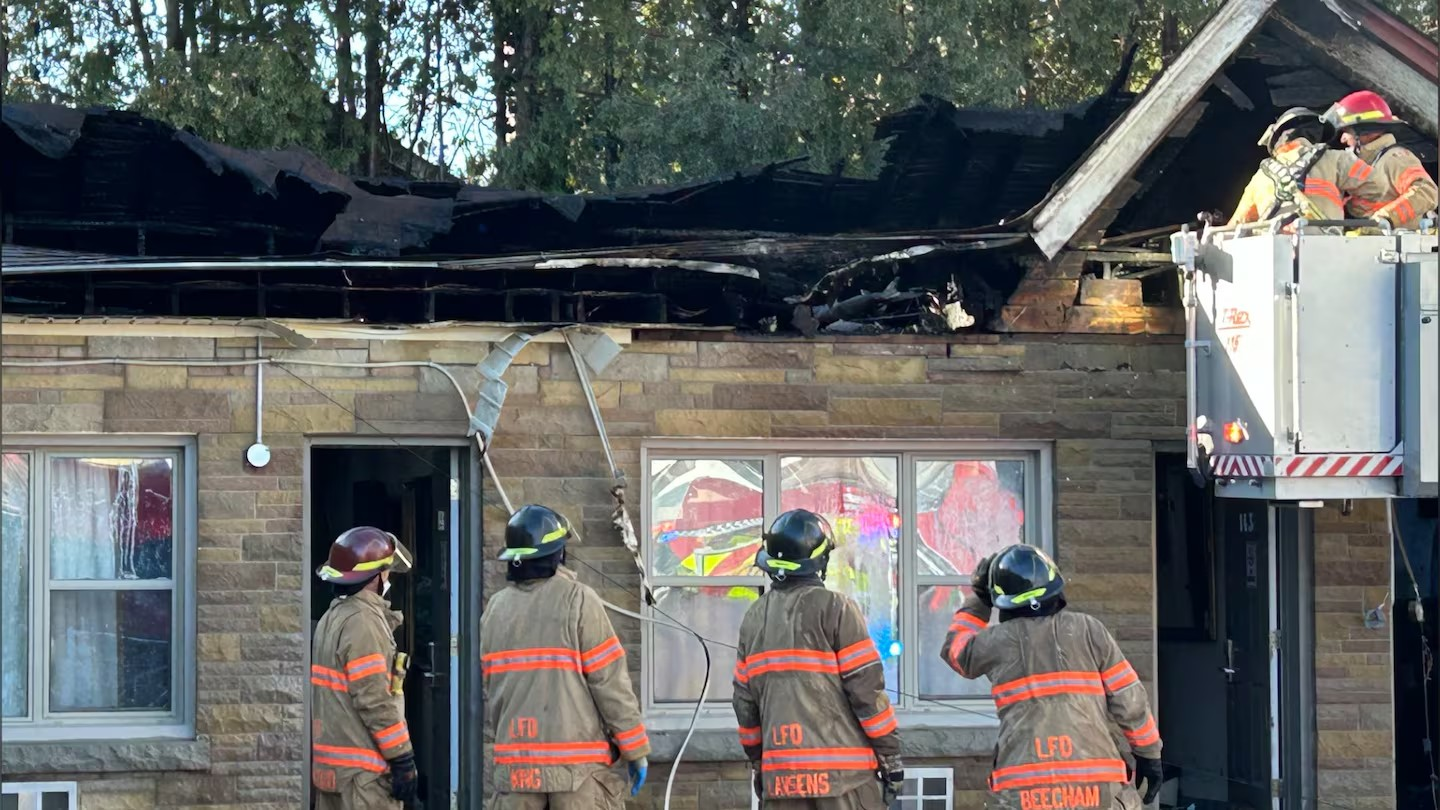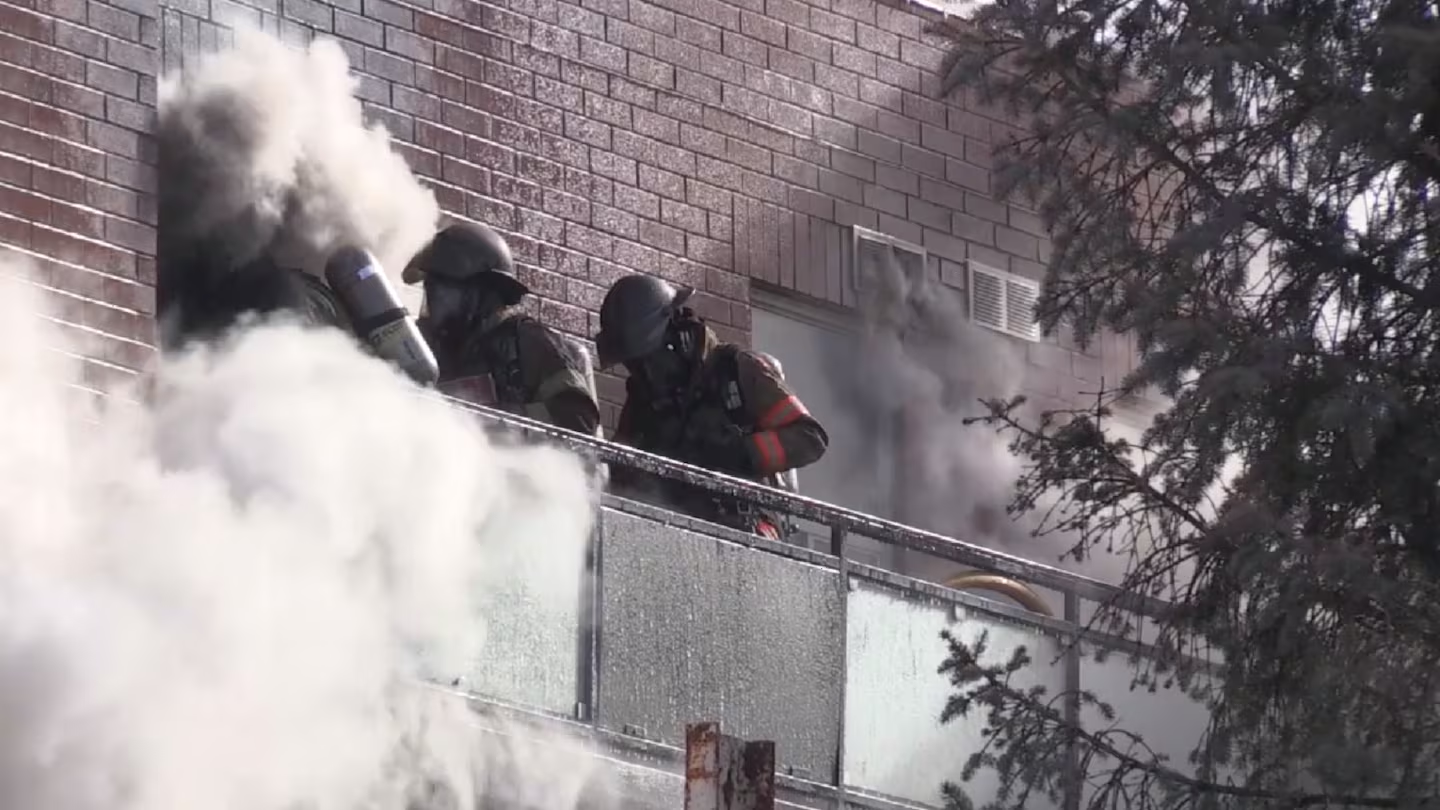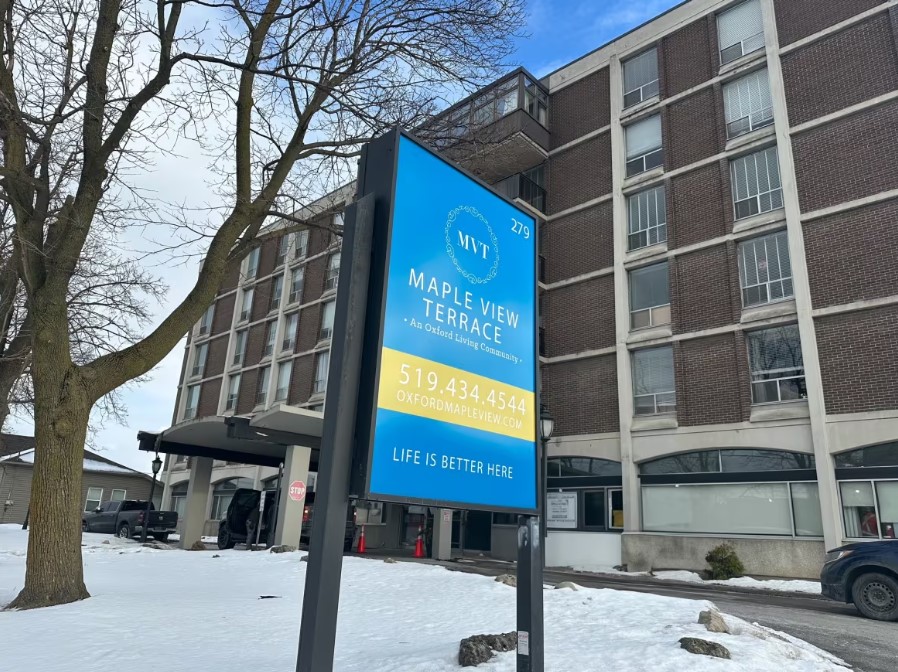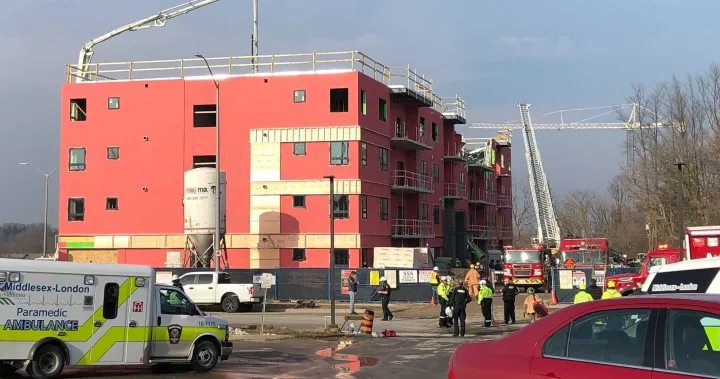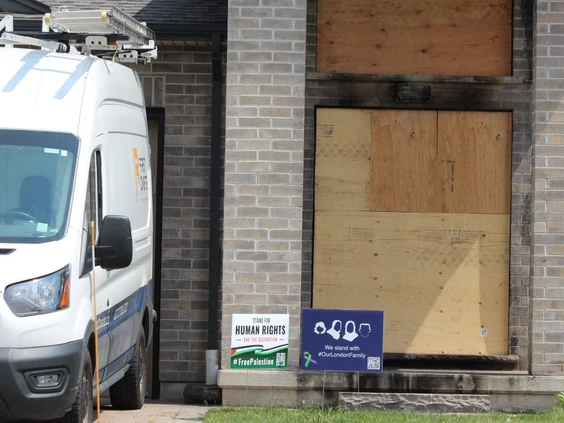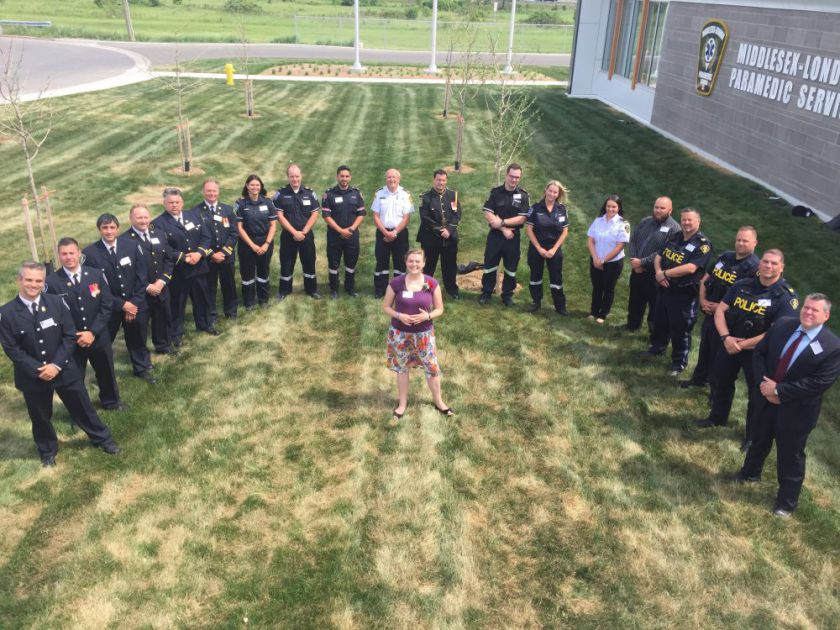
Ashlyn Krell is surrounded by all the emergency crews — police, fire, ambulance and towing personnel — who contributed to her rescue and survival after 27 minutes immersed in freezing water after a 2017 car crash. Special to The London Free Press
For some, it was the first time they met her alive.
For others, it was reassurance of their good work.
And, for Ashlyn Krell, the 29-year-old London woman whose amazing story of survival has captivated people across the country, it was another chance to say thank you.
Krell, along with her husband Brayden and her mother Sharon Skopnik, were guests at the Middlesex-London Paramedic Service’s annual Survivors Day, honouring cardiac arrest survivors and the people who saved them.
This was the sixth time the paramedics held the celebration. Last year, there were 45 cardiac arrest saves. Seventeen of those incredible stories were told at the event..
Krell was the subject of The Free Press’s award-winning series 27 Minutes, which told about her freak crash on Highway 401 on Feb. 12, 2017, when her car skidded off the road, down a ditch, hit a cement culvert and flipped over into a deep pool of cold run-off water.
She was pulled out of the car 27 minutes after the initial 911 call from a bystander. She was dead.
Her heart was re-started inside the ambulance on the way to the London Health Sciences Centre, where she was a patient for a month, with three weeks in the intensive care unit.
She has made a full recovery.
But her story wasn’t the only one told at the event at the paramedics’ new headquarters on Adelaide Street South. Many of their stories were a reminder of how fragile and how strong we are.
These are people whose hearts stopped beating and were revived, much of it due to the courage of first responders and the advancements in getting treatment to people early through CPR and defibrillators in every ambulance.
Many went into crisis while doing very average things.
Art Adams was just putting on his boots at home when he collapsed. He was dubbed the Miracle Man at hospital and has now devoted his life to volunteer work as a cycling coach for young people. Alexander Robertson had just come home from golfing when he felt tightness in his chest. His heart stopped while waiting on the steps for the ambulance. He was revived.
Kenneth Crawford’s last memory before he collapsed was standing in his kitchen after mowing the lawn. He woke up 3½ weeks later in the hospital. His wife performed CPR before the paramedics arrived.
Robert Morris was making a delivery to the Middlesex-London Health Unit when he collapsed. He was revived in the ambulance and was alert enough to yell out jokingly, “Who’s driving?” He needed a triple bypass.
And there was the story that was too close to home for the paramedic service. Adam Tapp, a paramedic, was at home in March woodworking in his shop with a friend. He was electrocuted when a piece of equipment shorted out.
His wife and his friend began CPR and his colleagues took over when they got there, shocking his heart and getting it going. His heart had stopped beating for 10 minutes.
He was at the event, in his paramedic uniform, looking relaxed and upbeat. His only lasting injury is the loss of a finger on his left hand.
When told how glad everyone was that he survived, he laughed. “So am I,” he said. He is preparing to return to work.
The people who saved Krell’s life were by far the largest group of rescuers. While the police officers who checked in on her recovery regularly had met with her before, Friday was the first time that the paramedics and the firefighters were able to talk to her.
And that was cathartic. So often, first-responders don’t have the chance to see the people they save. In Krell’s case, the rescue was so unlikely, the recovery so uplifting, that having a chance to see her, talk to her, hug her, meant much.
It was clear that it took a team of courage to save a life.
There were lots of photos taken, lots of thank-yous passed around.
A life saved. A reason to celebrate.
Source: Survivors gather to celebrate paramedic rescues | The London Free Press

